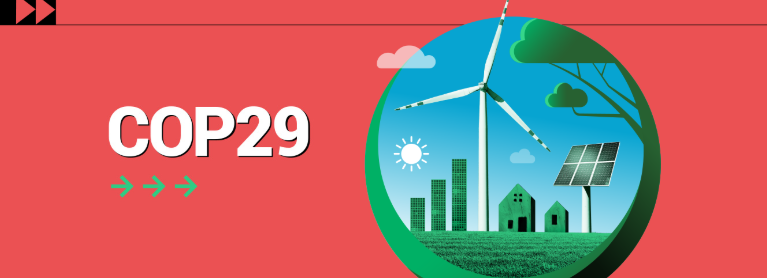Why do we seek knowledge and how should we do it?
- Miguel Barata
- Mar 28, 2023
- 3 min read

Humans have an innate desire to seek knowledge, to explore and understand the world around them. This drive has propelled us to achieve great feats, from inventing the wheel to exploring the depths of space. But why do we seek knowledge? What drives us to pursue it relentlessly? And how do ethics play a role in this pursuit?
One reason why humans seek knowledge is simply to satisfy our curiosity. We are naturally inquisitive beings, constantly questioning the world around us. This curiosity drives us to seek answers to the unknown, to explore new ideas and to push the boundaries of what we already know. This curiosity has led to some of the greatest discoveries in history, from the laws of physics to the existence of microscopic organisms.
Another reason why humans seek knowledge is to solve problems. Whether it’s finding a cure for a disease or developing new technologies to make our lives easier, the pursuit of knowledge can help us overcome some of the greatest challenges we face. Through research, we can develop new solutions to problems, create new inventions and improve existing ones.
However, the pursuit of knowledge is not without its ethical considerations. It is important to consider the ethical implications of any research we undertake. For example, medical research on human subjects must be conducted in an ethical manner, with informed consent, and with the aim of benefiting society. Similarly, research that involves animals must be conducted in a humane manner and with the aim of minimizing harm.
Furthermore, the pursuit of knowledge can be a double-edged sword. While it can bring many benefits, it can also be used for nefarious purposes. For example, research on bioweapons can lead to the creation of deadly diseases, while research on artificial intelligence can lead to the creation of autonomous weapons. Therefore, it is important to carefully consider the potential consequences of any research we undertake.
Ensuring that we are seeking knowledge through the right means is essential to maintain ethical and responsible conduct in our pursuit of knowledge. Here are some ways to ensure that we are seeking knowledge through the right means. Using reliable sources is an example of this, as it is important to ensure that the sources of information we rely on are reliable, trustworthy, and accurate. Examples of reliable sources are academic journals, books, and reputable news outlets as sources of information, and avoid relying on biased or sensationalized sources. When seeking knowledge, we must also follows ethical guidelines, which vary within different fields of research that have ethical guidelines that should be followed to ensure that the research is conducted in an ethical manner. These guidelines should be adhered to, and any research conducted should be done so in a manner that minimizes harm to participants and society.
When pursuing knowledge, is also important be be transparent: Researchers should be transparent about their methods, data, and sources of funding, so that others can assess the quality and reliability of their research.
Considering the broader impact is also crucial. The pursuit of knowledge should be conducted with consideration for the broader impact on society and the environment. Researchers should consider the potential benefits and harms of their research, and aim to produce knowledge that contributes to the betterment of society.
In summary, ensuring that we are seeking knowledge through the right means requires us to be diligent in our research, follow ethical guidelines, be transparent, and consider the broader impact of our work. By doing so, we can ensure that the pursuit of knowledge remains a responsible and ethical enterprise.
Despite the ethical consideration and hurdles one must overcome when researching something, the pursuit of knowledge is ultimately beneficial. It allows us to better understand ourselves, our world, and our place in it. It can help us to overcome challenges and improve our lives, and it can lead to great advances in science, medicine, and technology. Therefore, it is important to continue to seek knowledge, while always keeping in mind the ethical considerations that come with it. By doing so, we can ensure that the pursuit of knowledge remains a force for good in our world
Sources:
Erbe, J. (1542, February 23). How to seek knowledge and gain wisdom. LinkedIn. Retrieved March 27, 2023, from https://www.linkedin.com/pulse/seek-knowledge-gain-wisdom-jonah-erbe
Franch, G. (2022, October 19). Why do we seek knowledge? looking for answers in theory of knowledge. St. Peters School. Retrieved March 27, 2023, from https://stpeters.es/why-do-we-seek-knowledge-looking-for-answers-in-theory-of-knowledge/
Google. (n.d.). Removal of mentioned link https://www.google.com/url?sa=t&source=web&rct=j&url=https://m.youtube.com. Google Search Central Community. Retrieved March 27, 2023, from https://support.google.com/webmasters/thread/8984950/removal-of-mentioned-link-https-www-google-com-url-sa-t-source-web-rct-j-url-https-m-youtube-com?hl=en
Hoeller, C. (2013, July 2). Evolution of knowledge. Backwards Time Machine. Retrieved March 27, 2023, from https://backwardstimemachine.wordpress.com/2012/12/21/evolution-of-knowledge/





Comments